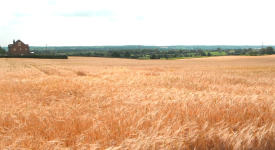The European Commission and African Union are joining forces to set up a joint taskforce to boost cooperation in agriculture between both sides. Agriculture was cited as one of the key points on the agenda of the EU-Africa summit that took place in Abidjan in November 2017. The agricultural taskforce will consist of 11 experts who will be in charge of making recommendations in the areas of skills transfer, climate change, food security and investment in agri-business.
This group will also be tasked with facilitating the integration of African value chains that will solidify the industry and transform the African agriculture to cater to a mass market – a major objective of the planned African Continent Free Trade Agreement (ACFTA). This will, however, require a rapid surge in both public and private investment. To that end, Carlos Lopes, the AU’s High Representative on the post-Cotonou talks, added that the lack of domestic processing often times forces African countries to export raw materials, whether commodities or produce, and then import the finished product.
“If you look at what is available, a lot is still imported…even coffee, which is the country’s main export, it’s all pure green bean exports, we need to get more investment into processing,” Erik Habers, the head of development co-operation at the EU’s delegation to Ethiopia, commented. “We are looking more at the linkages between smallholders, co-operatives, the private sector, processing, this whole value chain discussion,” he added. There are estimates that the number of hungry people will go up in Africa to 38 million by 2050 due to climate change. The International Food Policy Research Institute also forecasts that the continent will go through severe food shortages by 2020 and beyond. At the same time, malnutrition will be going up over the next two decades.







